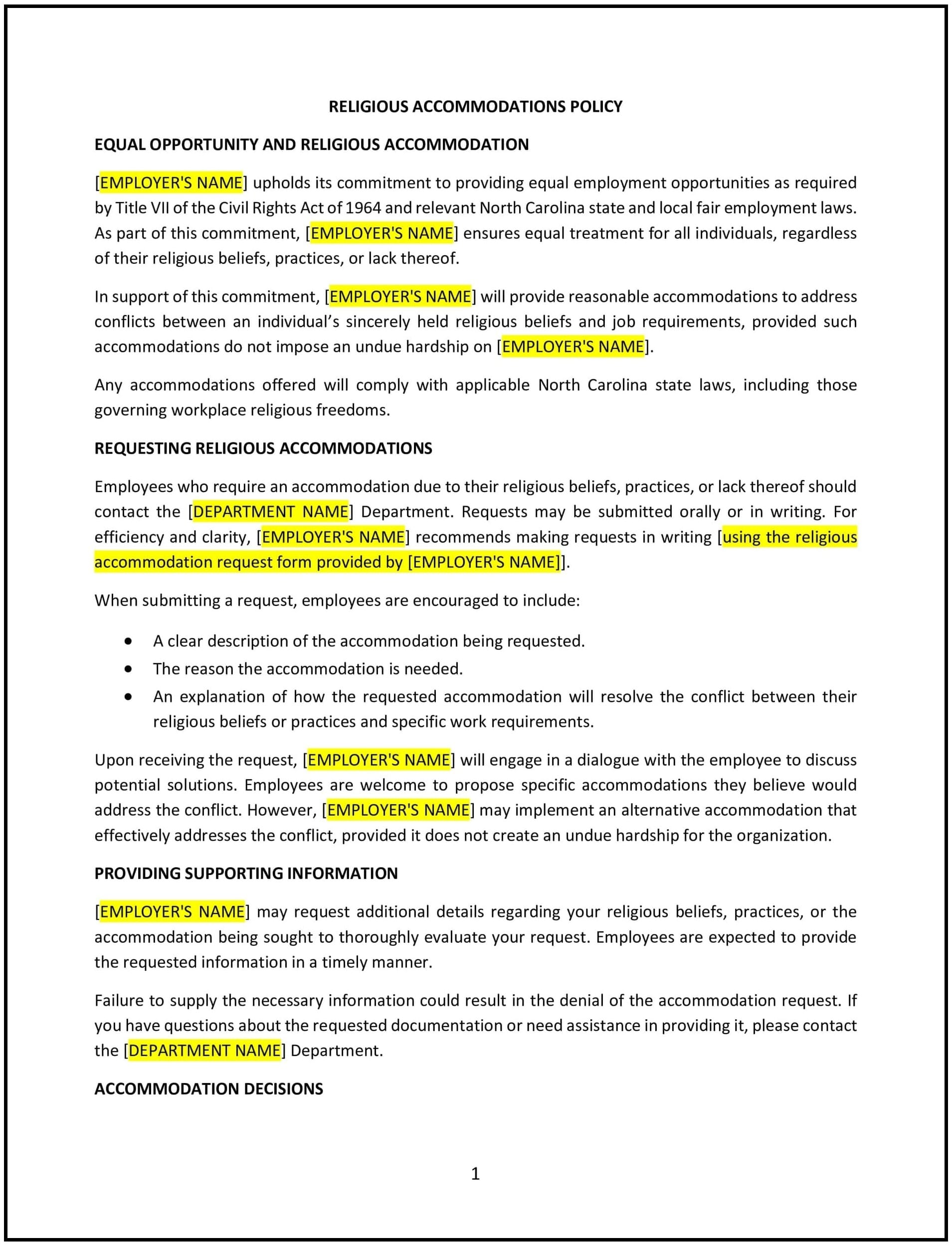Religious accommodations policy (North Carolina): Free template
Got contracts to review? While you're here for policies, let Cobrief make contract review effortless—start your free review now.

Customize this template for free
Religious accommodations policy (North Carolina)
A religious accommodations policy helps North Carolina businesses provide support to employees who need time off or accommodations for religious observances. This policy outlines how businesses will address requests for time off for religious holidays, prayer breaks, and any other accommodations related to an employee’s religious beliefs, supporting compliance with federal and state laws.
By adopting this policy, businesses demonstrate their commitment to inclusivity and respect for employees’ religious practices, while maintaining workplace efficiency and fairness.
How to use this religious accommodations policy (North Carolina)
- Define religious observances: Specify the types of religious accommodations available, such as time off for religious holidays, prayer breaks, or alternative work arrangements.
- Set accommodation procedures: Outline the process employees should follow to request religious accommodations, including how far in advance they should make a request and what documentation may be required.
- Establish evaluation criteria: Specify how the company will evaluate requests for religious accommodations, considering both the employee’s needs and the company’s operational requirements.
- Ensure non-discrimination: Make it clear that employees will not be discriminated against for requesting religious accommodations and that all requests will be treated fairly and respectfully.
- Reflect North Carolina-specific considerations: Ensure the policy complies with North Carolina’s laws regarding religious accommodations and any federal laws, such as Title VII of the Civil Rights Act of 1964.
Benefits of using this religious accommodations policy (North Carolina)
This policy provides several benefits for North Carolina businesses:
- Fosters inclusivity: Supporting religious accommodations promotes a diverse and inclusive workplace where all employees feel respected and valued.
- Reduces legal risk: Ensures the company complies with federal and state laws regarding religious accommodations, minimizing the risk of discrimination claims.
- Improves employee morale: Employees who feel their religious needs are respected are more likely to be engaged, loyal, and productive.
- Strengthens company reputation: Companies that demonstrate respect for religious diversity enhance their reputation as fair and inclusive employers.
- Promotes fairness: A clear, consistent policy ensures that all employees are treated fairly when requesting religious accommodations.
Tips for using this religious accommodations policy (North Carolina)
- Communicate the policy clearly: Ensure that all employees are aware of their rights to request religious accommodations and understand the process for doing so.
- Provide training: Train HR personnel and managers on how to handle requests for religious accommodations fairly and in compliance with the law.
- Review the policy regularly: The policy should be reviewed annually to ensure it complies with North Carolina’s laws and reflects the needs of employees.